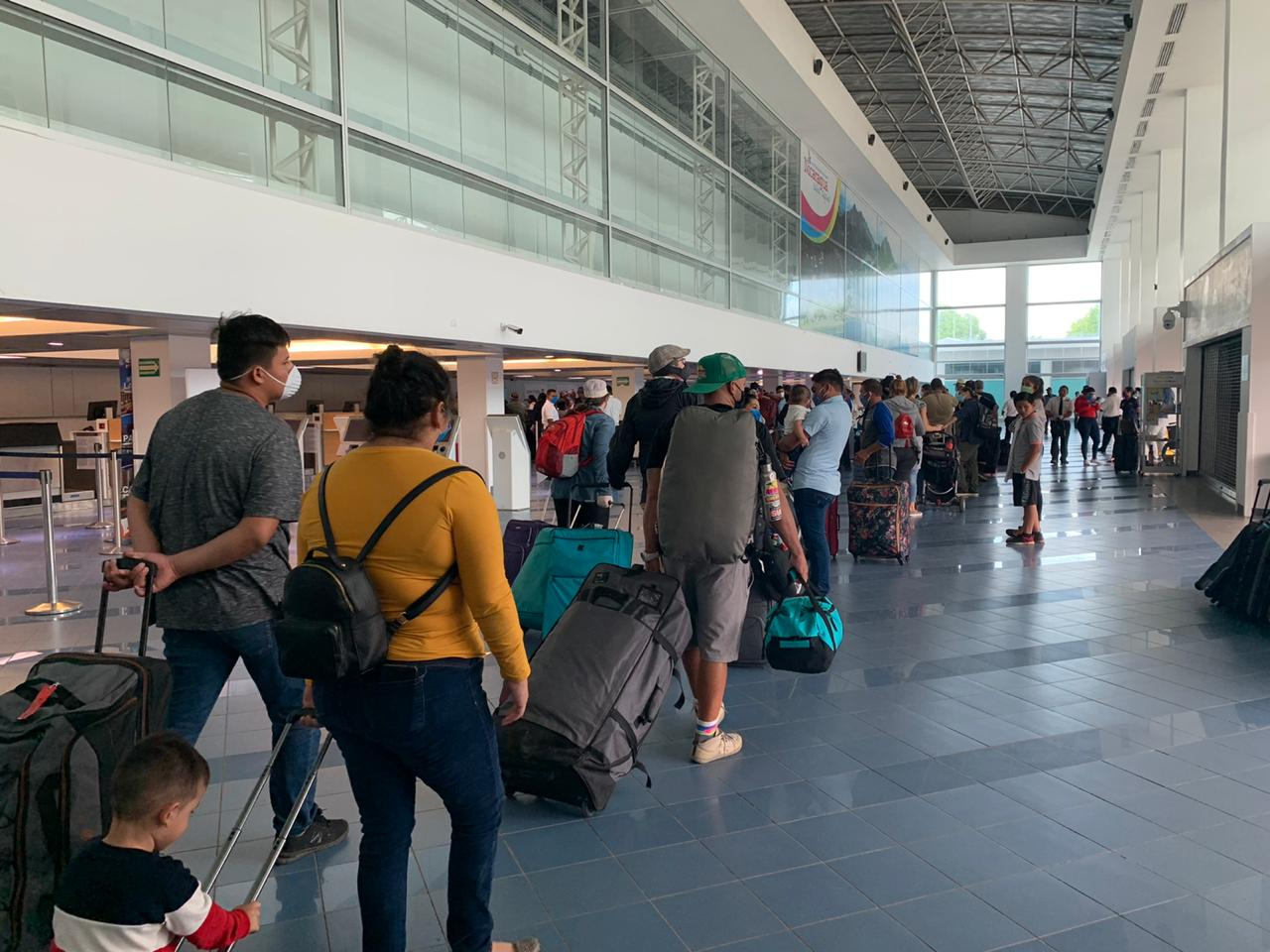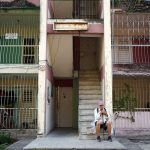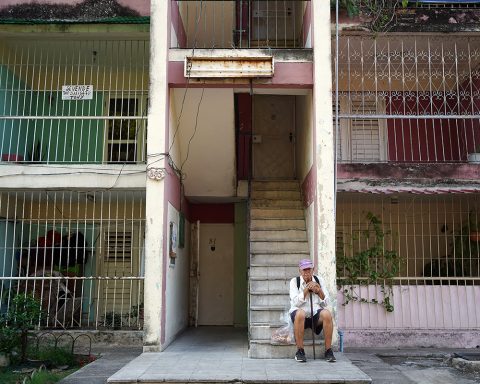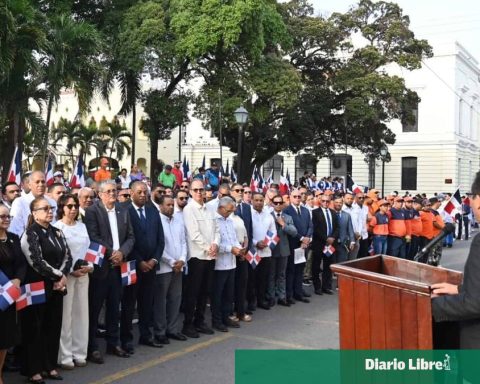The fertile lands of northern Nicaragua, where beans and corn have been grown for generations, are being left desolate and rural communities are suffering in various ways: they see their families disintegrate, hunger rages and the tradition of living off the production of crops dies. field.
The cause of this drama is mass migration. Many, most of them young, have left in search of better opportunities, others are fleeing the persecution of the regime that has governed Nicaragua for 17 years and that refuses to abandon the power it maintains with weapons. “You plant what you can because the kids are gone,” says Don Silverio, a 57-year-old farmer who previously worked in his fields with four of his six children.
“They left and took my grandchildren, and now only my wife and I are left,” he laments. «They live abroad (in another country), and there is no one left here to follow the country tradition. They tell me to sell the land, but you know, it is the inheritance of my father and my grandparents. I thought I was going to leave it to them, but I don’t know if they’ll come back,” he adds in a sad tone.
The massive migration suffered by Nicaraguan fields puts at risk the production of basic foods, of which Nicaragua was historically self-sufficient. What is felt in these communities is uncertainty, loneliness and sadness. “You don’t cry because you achieve nothing, but before you were a kid here, now you are sad (desolate),” explains Don Silverio.
“Farewell to the countryside”
Marcos Reinosa is a producer from Matagalpa who has lived his entire life from what he grows. He describes with a tone of sadness how agriculture, an economic and cultural pillar in his family “is in decline,” in his own words. «My son doesn’t like the land; the field then. He said that he killed himself and barely ate,” says the father with a tired face.
«Agriculture is deteriorating, many farmers are abandoning the countryside. They are leaving the crops, the garden, to go outside the country or to the city to look for work in factories or free zones,” he points out.
What Don Silverio and Don Marcos say reflects that worrying reality in Nicaragua; the countryside is left without generational replacement. For a local economist who, due to government persecution, asks to comment on the drama under anonymity, he points out that “this relief is essential to maintain the economies of thousands of families and warns of the risk of an agricultural tradition disappearing in thousands of communities.”
Related news: Nicaragua, the one that loses the most with mass migrations
«It is serious, that is a job that should not be discontinued because that is where we all feed ourselves. What good are factories, industries, if there is no food? It is a sensitive issue for an economy like ours that depends a lot on agricultural life,” he points out.
He explains that for a very socio-cultural issue, producers like Don Silverio and Don Marcos will do whatever it takes to keep “their orchards alive,” but that these intentions have limits. “There are extensions of land that are already idle and there will be more left at the rate we are going,” warns the specialist. “Production in some areas has decreased and the blame is not only on the bad winter or financing, there is a lack of labor,” he explains.
Impact on food production
Voices from the countryside assure that the production of beans and corn, the basic products that fill the tables of Nicaraguans, is at risk. According to a study by the Agroindustrial Chain of the Inter-American Institute for Cooperation on Agriculture (IICA), in 2007, Nicaragua managed to harvest 3.9 million quintals of beans. However, last year, 2023, red bean production stagnated at the same amount, falling far from the projected goal.

Corn has had an even more significant drop. During the 2005/2006 agricultural cycle, 568,000 acres of corn were planted, achieving a harvest of 12.22 million quintals. On the other hand, for the 2023/2024 cycle, production reached only 7.8 million quintals, which represented a drastic reduction that endangers the country’s food security.
According to the specialist, government authorities have not been concerned with creating incentive policies for farm work; on the contrary, they are the ones who have encouraged mass migration. “Not only have they not created opportunities, but they repress, harass, and as a result, thousands of young people have left to have better luck,” he maintains.
To this – he adds – we must add that less and less, young people see life in the countryside with any interest, they prefer big cities for a matter of opportunities and a better way of living. “There is a clear disinterest in the new generations, added to the fact that migration has become fashionable, political persecution and economic instability, everything has contributed to this alarming situation,” reiterates the economist.
Related news: The US denounces that “permissive Nicaraguan authorities irresponsibly encourage immigration”
The voice of small producers
Salvador Matute, a small producer from the department of Nueva Segovia, also expresses his concern. “You don’t want to work in the fields,” he says. «The remaining men no longer want to look at the field, they don’t see it as an opportunity. There are other forms of work in the city, they say, and fewer and fewer people stay in agriculture,” he complains.
For Don Salvador, the lack of generational change is a serious problem. “If there are no young people to continue, what we produce today will end tomorrow,” he warns. The farmer says that the other problem is that work in the field now involves more than before, many sacrifices for the producer.
«The problems are so serious that at some point no income is generated and of course you cannot pay much for the work on the farms. It is a lot of effort for little result, and people do not want to continue suffering as we suffer,” he concludes.
Mass migration in search of better living conditions has exacerbated the problem in the countryside. A recent survey by Cid Gallup, for example, revealed that more than 70% of Nicaraguans, especially young people, want to leave the country, motivated by the difficult economic situation and the political repression of the regime of Daniel Ortega and Rosario Murillo.

More than 50% of respondents reported experiencing hunger in recent months, an increase of 11% compared to the previous year. In recent months, thousands of Nicaraguans have crossed the borders into the United States, mostly fleeing poverty and lack of opportunities.
Unfortunately, many of them have lost their lives along the way, worsening the situation of their families, but this has not stopped migrations. “That only reflects the desperation that pushes them to take these risks,” says the economist. «There are families who lent money using their plots as collateral and with tragedies like these, they lost everything. What’s happening in the field right now is hard,” he says.
Educate and educate about life in the countryside
Others are optimistic and say they are not ready to give up. René Rodríguez is a farmer from Estelí and an example of this. “We come from a family legacy, and we have inherited it for decades,” he explains. His two sons and daughter work with him in the field, planting beans, corn and vegetables.
Aware of the importance of education, Rodríguez is providing education to his children, but he has also made them aware of the importance of maintaining the family’s agricultural tradition.
«I am creating awareness that you don’t live by studies alone. Universities sometimes just create employees, and I don’t want them to be employees like I was. Agriculture does not necessarily have to come from a family legacy, sometimes it is because one likes it,” he adds.
Related news: Massive migrations could leave empty classrooms in universities in northern Nicaragua
This farmer points out that, although young people seem disinterested in the field, many professionals such as doctors and lawyers, after years of studies, dedicate themselves to agriculture. This, according to him, shows that love for the land can “also be cultivated”, regardless of academic training.
Crops are key to the economy
Estelí is an important department in bean production in Nicaragua. In its two annual cycles, farmers in this area can grow up to 150,000 quintals of beans on more than 4,000 acres of land. These products guarantee not only local consumption, but also their marketing in national and international markets.
Despite the current situation, the efforts of farmers like René, Don Silverio and Don Marcos are a light of hope in a panorama that seems gloomy. The production of beans and corn, two of the country’s most important commodities, cannot continue to decline. “Measures must be taken to support farmers and motivate new generations to continue working the land,” Rodríguez recommends.
“Without cultivated land there is no food,” says Son Silverio. For the expert, for their part, the authorities of the regime must carefully review the target figures for each cycle and work on actions that support growth each year and not decline. “Hunger kills, we must have beans to kill her first,” advises Don Marcos.


















